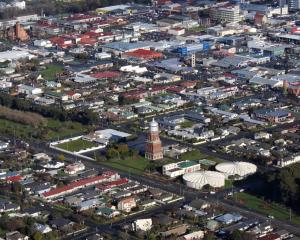The Dunedin City Council was yesterday still working to find a solution to an issue that appears to have spooked the insurance industry.
The Otago Daily Times reported on Saturday a significant tract of Dunedin's flat land had been declared at risk of liquefaction.
The issue arose after Leanne Clark, of Dunedin, requested a land information memorandum (LIM) from the council for a Forbury Rd property.
She discovered not just that it might be subject to increased seismic movement, which had been on LIMs for some time, but a new warning that land at the address "may be at risk of liquefaction in a severe earthquake", and site-specific foundation design may be required.
Two insurance companies told her they would not insure the property.
Council city environment general manager Tony Avery said on Friday that while there had been no changes to the land, council hazards adviser MWH had changed the wording on the LIMs after the Christchurch earthquake.
Insurance Council of New Zealand chief executive Chris Ryan said the issue should not necessarily affect homeowners' ability to get insurance.
But solicitor Todd Whitcombe, a partner at Dunedin law firm O'Neill Devereux, said yesterday he had a client who wanted to buy a property in the affected area and who was struggling to get insurance.
Real Estate Institute of New Zealand spokeswoman Elizabeth Nidd, of Dunedin, said the changes to the LIMs were "an overreaction".
"The whole thing has become so PC. People are being so careful to cover their own back."
Despite nothing having changed apart from two sentences on LIMs, "anything that potentially makes it difficult to get insurance is a concern".
"You can't buy a house if you can't get insurance. That's it in a nutshell. I'd like to see it go back the way it was."
Mr Whitcombe does conveyancing work and is a member of the executive of the New Zealand Law Society's property law section.
It appeared the bank concerned would require a geotechnical report on the property, at a cost of between $500 and $1000, before insurance could be organised.
Geotechnical reports were usually needed in Dunedin only where there was a risk of landslip.
"We haven't seen it for flat land."
The client had already committed to the purchase, subject to receiving a LIM, and received it at the weekend after Ms Clark's problem became public.
They were told by the bank of the insurance problem yesterday.
Mr Whitcombe said banks and insurers appeared to be making sure their risk was minimised.
"I suspect the insurers are probably going to be working out the best position to take on it; whether it's a real problem or not."
While the problem for his client was "not insurmountable", people needed to be certain they could get insurance from the date of settlement when they bought a property.
Dunedin property valuer Tony Chapman said the issue appeared to be "blown out of proportion".
Nothing had changed apart from the Christchurch earthquake taking place.
"It's scaremongering."
Mr Avery said it was possible the wording on the LIMs would go back to what it was.
He was organising a meeting "to look at the issue in greater detail".
Advertisement







